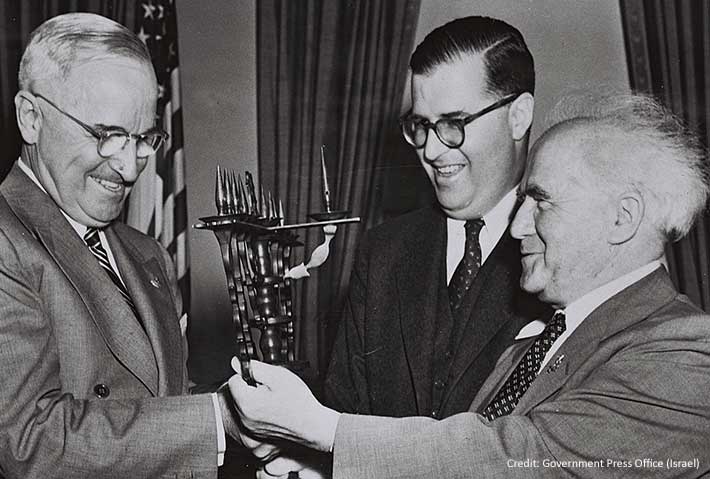Israelis You Should Know: Abba Eban
Eban continued his work at the U.N. throughout the 1950s, while also serving as Israel's Ambassador to the United States.Lived: February 2, 1915 - November 17, 2002 Known for: An Israeli diplomat, politician, and scholar, Abba Eban served the Jewish state from before it won its independence and for decades afterward. Why you should know him: Born Aubrey Solomon Meir Eban in Cape Town, South Africa, to Jewish parents from Lithuania, Eban moved to England at a young age. There, he spent every weekend at his grandfather's house studying Hebrew and the Bible. During his schooling, Eban was active in Zionist organizations and edited the journal, The Young Zionist. When World War II began, he went to work for Chaim Weizmann at the World Zionist Organization, while also serving as an intelligence officer in Jerusalem, where he prepared for resistance in the event of a Nazi invasion. After the war, Eban was sent to New York to work on the "Palestine Question" at the United Nations General Assembly. As a liaison officer to the U.N. in 1947, he was successful in gaining approval of the partition of then-British-mandate Palestine into Jewish and Arab segments, which became known as Resolution 181. After this, he changed his first name to the Hebrew word, Abba, meaning "father," as he could be considered a father of the modern state of Israel. Eban continued his work at the U.N. throughout the 1950s, while also serving as Israel's Ambassador to the United States – in the photo above, taken in 1951, Eban and Israeli Prime Minister David Ben-Gurion present American President Harry Truman with a Hanukkah menorah. With his work as a diplomat requiring much oration, Eban became known for his speaking skills. Henry Kissinger once said: I have never encountered anyone who matched his command of the English language. Sentences poured forth in mellifluous constructions complicated enough to test the listener's intelligence and simultaneously leave him transfixed by the speaker's virtuosity. Eban's excellence in English was not his only skill with tongues – he was fluent and educated in ten languages. Leaving the U.S. in 1959, Eban returned to Israel, where he was elected to the Knesset (Israel's parliament). He also served as Ben-Gurion's Minister of Education and Culture from 1960 to 1963, and the Deputy Prime Minister until 1966. From 1966 until 1974, Eban served as Israel's Foreign Minister, defending the Jewish state at the U.N. after the Six-Day War of 1967 that: So on the fateful morning of 5 June, when Egyptian forces moved by air and land against Israel's western coast and southern territory, our country's choice was plain. His comment after the December 1973 Geneva Peace Talks is also famous, that the Palestinians "never miss an opportunity to miss an opportunity." Abba Eban died in 2002, and was buried north of Tel Aviv. He was survived by his wife Suzy and their two children. A year before he passed away, Eban was given the Israel Prize for lifetime achievement and special contribution to society, an honor for a man who dedicated his life to serving the Jewish state. Eban continued his work at the U.N. throughout the 1950s, while also serving as Israel's Ambassador to the United States. |
|
|


